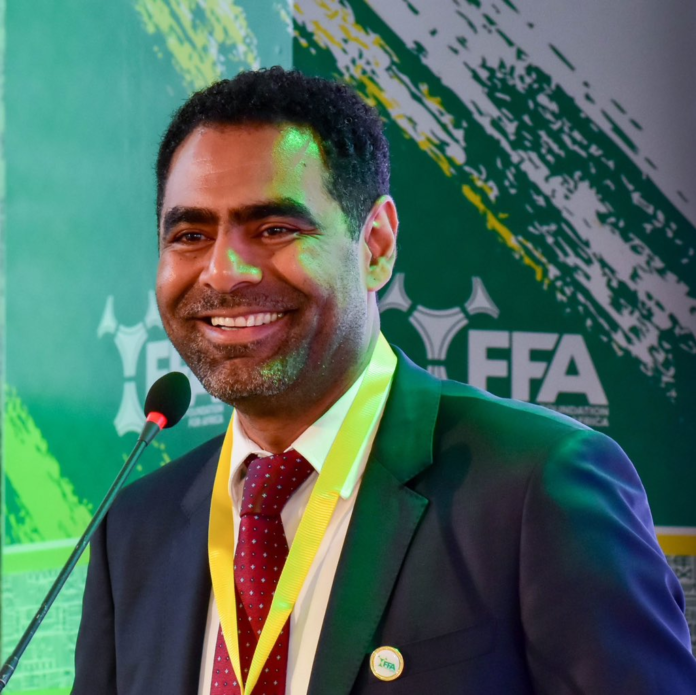Football Kenya Federation (FKF) President Hussein Mohammed has raised alarm over the growing threat of match-fixing in local football, calling for urgent legislative intervention to criminalize the vice.
Speaking during a presentation to the Parliamentary Sports Committee, chaired by Webuye West MP Daniel Wanyama, Hussein noted that the Federation’s capacity to deal with match-fixing is severely hampered due to the lack of appropriate legal tools.
“Our hands are tied when it comes to match-fixing. We need laws that criminalize this practice,” he said.
“Match-fixing is a cancer in football, and we must act decisively to protect the integrity of the game.”
Hussein was accompanied by key Federation officials, including Vice President McDonald Mariga and Secretary General Harold Ndege. The FKF leadership presented a comprehensive report on the state of Kenyan football, outlining progress and challenges faced since taking office.
In his address, the FKF boss highlighted several key areas needing attention — from infrastructure development to youth talent investment and financial support for national teams.
“Football in Kenya has gone through various phases. Despite the challenges over the years, football remains the most popular sport in the country. This administration is committed to ensuring we elevate our football to new heights,” he said.
Progress in Women’s Football
Mohammed praised the strides made in the women’s game, noting that female teams are currently outperforming their male counterparts in international competitions.
“Our women’s football is actually performing better than the men’s teams at the moment,” he stated.
He pointed to Kenya’s under-17 women’s team, which recently beat Morocco 2–0 and is close to securing World Cup qualification. He added that the Federation has made significant investments in women’s football and plans to expand that support.
Infrastructure and League Structure
On infrastructure, Hussein underscored the urgent need for quality facilities to foster growth and attract commercial interest in the sport.
“Without the right infrastructure, we cannot fully commercialise the sport. We need to build facilities across the country, from grassroots levels to national stadiums, to develop a competitive and marketable league,” he remarked.
He also revealed ongoing efforts to restructure the country’s football league system, which currently comprises seven tiers.
“We currently have seven tiers in the league structure, and we are looking at making this system more appealing for fans and sponsors alike,” he added.
Youth Development and Technical Capacity
Youth football remains a major focus of FKF’s roadmap, with initiatives targeting school programs and academies.
“We are investing in youth football, particularly in schools and academies, and we are developing a scouting program to ensure we find the best talent at the grassroots level,” Hussein explained.
Funding, Remuneration, and Legal Reforms
The FKF President expressed concern over inadequate funding, urging the government to allocate more resources to the sport.
“Football is the most popular sport in the country, yet the funding we receive is not enough,” he said.
He also raised the issue of low allowances for national team players, insisting that improvements are needed to motivate players and staff.
“The remuneration for our players is far below expectations. We need to increase allowances and incentivize players and the technical staff,” he said.
In a push to attract global investment, Hussein called for an overhaul of Kenya’s sports legislation.
“We have had interest from international investors in European and American markets, but our current sports laws are not conducive to attracting such investment,” he noted.
He concluded by appealing to lawmakers and stakeholders to support the Federation’s reform agenda, emphasizing the need for collaboration to transform Kenyan football.
“Your role is crucial in cleaning up the past, securing the present, and laying the groundwork for the future of football in Kenya. Together, with the support of all stakeholders, we can achieve the success that Kenyan football deserves,” he said.







